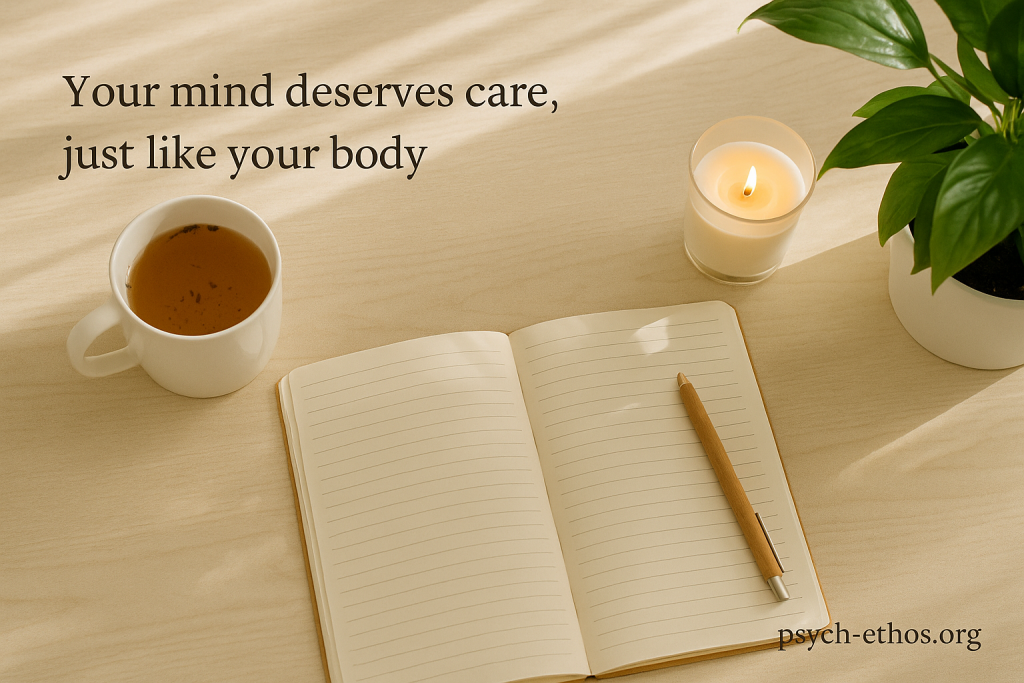
In our previous post, we explored what mental health really means — getting to know our own mind, learning how to distinguish between mental health and mental illness, and understanding how to care for that beautiful inner space.
Building on that foundation, let’s now talk about something equally important but often overlooked: emotional hygiene.
Just like brushing our teeth keeps our mouth clean and healthy, emotional hygiene helps us keep our minds clear, calm, and resilient. It’s about the small, everyday habits that protect our emotional well-being — before things become overwhelming.
💭 A Gentle Reminder: You Are Not Your Feelings
Before we move forward, let’s remember something simple but powerful:
“Our feelings are something we have — not who we are.”
We all experience a range of emotions. But feelings, no matter how strong, don’t define us. They come and go — like waves — and learning to observe them without judgment is a form of quiet strength.
🤝 Be Your Own Best Friend
We’re often quick to offer support to others, but how often do we turn that kindness inward?
Being your own best friend — showing yourself compassion, patience, and encouragement — is the foundation of emotional balance. When you learn to support yourself from within, everything outside becomes easier to navigate.
It’s great to have role models, but what if we started seeing ourselves as one too? Being your own guide, learning from your experiences, and cheering yourself on — that’s a form of empowerment no one can take away.
💡 Why Emotional Hygiene Matters
Caring for your emotions regularly — not just during difficult times — builds resilience and mental clarity. Here’s why it matters:
- Stress needs management, not suppression. Left unchecked, it can affect your health, relationships, and sleep.
- Staying physically active lifts your mood, improves focus, and supports mental clarity.
- Mind and body are deeply connected. When your body feels good, your mind follows — and vice versa.
- What you consume — mentally and physically — shapes how you feel. Feed yourself with good thoughts, balanced food, and calm spaces.
- Quality sleep is healing. Scrolling on phones late at night disrupts your body’s natural rhythm. Your mind deserves rest, too.
- Mindfulness is presence. It’s about noticing what’s happening around you, and within you — without being harsh or critical.
✨ 5 Simple Emotional Hygiene Habits for Everyday Life
Here are a few gentle practices that can help you feel lighter, clearer, and more balanced:
- Start your day with a beginner’s mind — stay curious, not critical.
- Be present — give your full attention to the moment you’re in.
- Observe your breath — slow, conscious breathing grounds you.
- Do what you love, mindfully — cooking, music, walking, journaling — anything that makes you feel alive.
- Laugh deeply and often — it’s one of the simplest ways to heal.
💛 In Closing
Caring for your emotional well-being doesn’t have to be complicated — it just needs to be consistent.
Small acts of self-kindness, daily moments of awareness, and gentle reminders that you matter can go a long way.
So take a pause. Breathe. Be kind to your thoughts.
And remember — just like your body, your mind deserves daily care, patience, and love.
Tending to your emotional health isn’t a luxury. It’s a quiet act of strength.
This post is inspired by concepts from Liggy Webb’s book “Mental Health: How to Look After Your Emotional Wellbeing” (BiteSized series) which encourages practical, everyday actions to support emotional health.